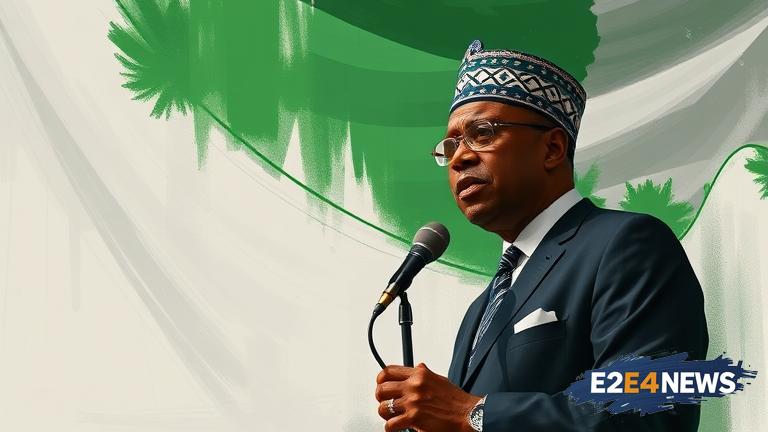The 2027 Nigerian presidential election is fast approaching, and Peter Obi, a prominent politician, has expressed his interest in running for the highest office in the land. However, his presidential dream is facing significant challenges that could hinder his chances of winning. One of the major obstacles is the lack of a strong political structure, which is essential for winning a presidential election in Nigeria. Obi’s party, the Labour Party, is still struggling to gain traction and build a robust support base across the country. Furthermore, the party’s finances are limited, which could affect its ability to campaign effectively and reach a wider audience. Additionally, Obi’s campaign has been plagued by controversies, including allegations of corruption and criticism of his policies. The Nigerian electorate is also becoming increasingly skeptical of his ability to lead the country, given his limited experience in governance. Moreover, the ruling party, the All Progressives Congress (APC), is expected to field a strong candidate, which could split the votes and make it difficult for Obi to win. The opposition party, the Peoples Democratic Party (PDP), is also likely to pose a significant challenge to Obi’s candidacy. The 2027 election is expected to be highly competitive, with several other candidates vying for the presidency. The election will be a test of Obi’s popularity and his ability to connect with the Nigerian people. The campaign is expected to be intense, with candidates using various strategies to win the hearts and minds of voters. The role of social media and other digital platforms will be crucial in the election, as candidates seek to leverage these tools to reach a wider audience. However, the Nigerian electoral process is often marred by violence, intimidation, and other forms of irregularities, which could affect the outcome of the election. The Independent National Electoral Commission (INEC) will play a critical role in ensuring the credibility and transparency of the election. The international community will also be watching the election closely, given Nigeria’s strategic importance in the region. The outcome of the election will have significant implications for the country’s future, including its economy, security, and political stability. As the election approaches, Obi’s supporters are becoming increasingly anxious about his chances of winning. The party’s leadership is working tirelessly to mobilize support and build a strong campaign team. Despite the challenges, Obi remains optimistic about his chances, citing his popularity among young people and his commitment to good governance. However, the road to the presidency will be long and difficult, and Obi will need to overcome significant obstacles to achieve his dream. The Nigerian people will ultimately decide the outcome of the election, and it remains to be seen whether Obi’s message will resonate with them. As the campaign heats up, Nigerians will be watching with keen interest to see how events unfold. The 2027 presidential election will be a defining moment in Nigeria’s history, and the outcome will have far-reaching consequences for the country and its people.
